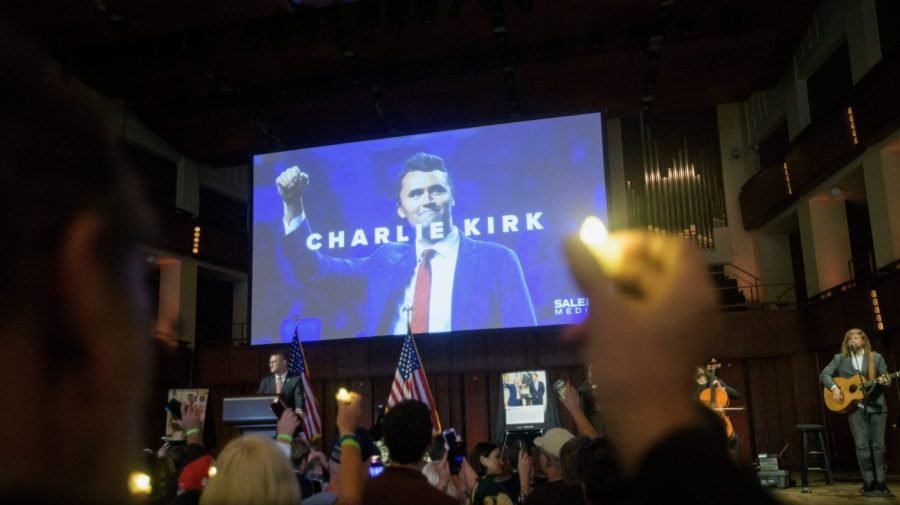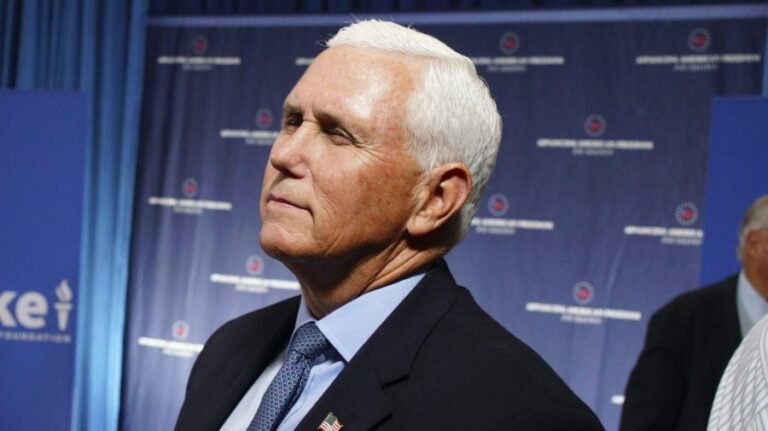
I didn’t plan to write about Charlie Kirk’s assassination, but these chaotic times have a way of changing our best-laid plans.
Kirk’s senseless murder has been met not with a call for national healing but with demands by prominent Republicans for immediate retribution. This has included Fox News host Jesse Watters declaring “war” on Kirk’s opponents, and Vice President JD Vance vowing to crack down on the “far left.”
“This is not a both-sides problem,” Vance said at the end of Monday’s “Charlie Kirk Show,” which he personally hosted from the White House. “If both sides have a problem, one side has a much bigger and malignant problem, and that is the truth we must be told. That problem has terrible consequences.”
On Monday, President Trump escalated tensions still further with a promise to use “every resource” at his disposal to target left-leaning non-governmental organizations and advocacy groups. Never mind that the FBI and Utah police have not released any definitive statement on the shooter’s motive or political ideology. But the shooter’s true feelings hardly matter: Trump was already vowing vengeance against his political opponents before the FBI even had a suspect in custody.
Despite what Trump and Vance want Americans to feel, political violence is actually mercifully rare in the U.S. According to data compiled by the conservative Cato Institute, 83 percent of all Americans killed in political violence since 1975 died on one day — Sept. 11, 2001. Another 5 percent died in the 1995 Oklahoma City Bombing, perhaps the most infamous act of right-wing terrorism in modern history.
Kirk’s murder stands apart from data dominated by mass killings because it was individual — and, apparently, deeply personal. According to FBI Director Kash Patel, alleged gunman Tyler Robinson wrote a note that said in part, “I have the opportunity to take our Charlie Kirk, and I’m going to take it.”
This wasn’t an act of mass violence in which hundreds or thousands of victims were seemingly chosen at random for death. The shooter knew Kirk’s work, hated it, and decided to vent that hate through the barrel of a Mauser .30-06 rifle. That level of individualized hatred should — must — shock any civilized and free society to its core. But if Robinson’s act shocks our sense of justice, so must Trump’s attempt to manipulate the anger and pain in our nation for the cynical goal of crushing his ideological enemies.
The Cato Institute and an army of social media pundits have pointed out that right-wing violence far outnumbers left-wing attacks since 1975. Cato’s data reveals that right-wing people or groups have been responsible for 54 percent of politically motivated murders since 2020, compared to just 22 percent for Trump’s reviled “leftists.” When Trump, Vance and other Republicans feed the right’s growing desire for vengeance against the left with bogus statistics and hyperpartisan fearmongering, they only worsen a crisis that has already claimed too many lives.
My point isn’t that Trump should instead declare a “war” on right-wing extremists. Rather, our country would be better served (and safer) by declaring war on the root causes of political violence across the political spectrum. Robinson’s act of political violence in Utah and the shooting at Evergreen High School in Denver by a teenage neo-Nazi on the same day aren’t bound together by ideology, but by a shared social alienation amplified by online social networks that have radicalized some of our nation’s youngest.
Utah Gov. Spencer Cox (R) wasn’t being hyperbolic when he called social media companies “conflict entrepreneurs.” Social media algorithms have played a leading role in normalizing extreme political opinions, and our social media-addicted lawmakers are only making matters worse. Rep. Derrick Van Orden (R-Wis.) posted more than 550 tweets in the five days after Kirk’s murder, including calling for war and retaliation against “leftist scumbags.” Van Orden’s tweets inevitably go viral, expanding their reach hundreds of times over. But what do they do to make the next violent act less likely?
Our leaders can’t seem to stop themselves from stoking the flames of partisan violence. If that is the case, the American people must choose to be the soldiers who refuse to fight. Only by rejecting calls to hate will we find a way out of this perilous moment.
Kirk didn’t deserve to die for his beliefs. Neither do the Americans whose lives are put at risk by Republicans’ dangerous calls for revenge. Those who have been radicalized to violence believe that the American experiment has failed and the only answer now is blunt force against those with whom they disagree. Our elected leaders must not prove them right.
Max Burns is a veteran Democratic strategist and founder of Third Degree Strategies.


